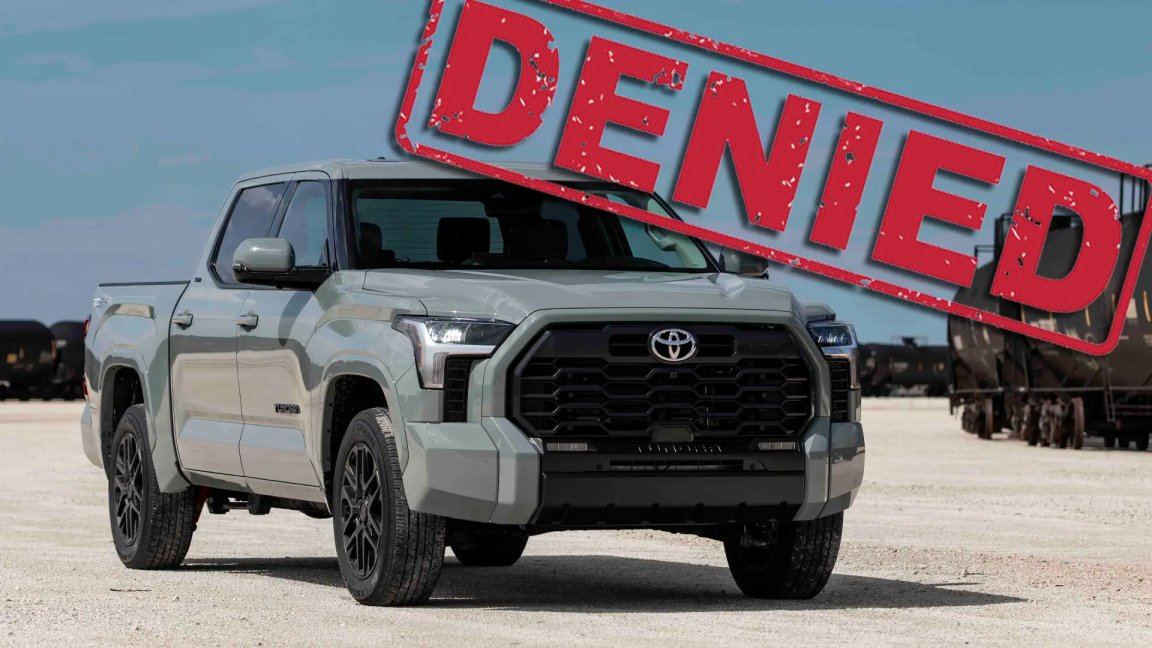We finally know why Toyota’s twin-turbo V6s are self-destructing: There’s machining debris from the manufacturing process stuck inside. These tiny bits of shrapnel force main bearing failures, which can lead to engine knock and, eventually, total shutdowns. The news broke nearly two weeks ago when Toyota issued a recall for 2022-2023 Tundras and Lexus LX600s, and now, dealers are refusing to take those trucks as trade-ins due to the recall.
The trend was first spotted by Pickup Truck and SUV Talk, who spoke directly with a handful of Tundra owners. One tried swapping their truck for a 2024 GMC Sierra AT4X but was told no by Castle Automotive Group in McHenry, Illinois. A Tundras.com forum user was denied when trying to trade for an older 2020 Land Cruiser, simply because dealerships don’t want to sit on the trucks while Toyota issues an official fix. There’s no timeline for that yet, but some speculate it could be a total long-block replacement.
Truthfully, that might be the preferred solution for Toyota dealers, even if it takes a while. Some owners who have already made warranty claims for failed V6s had their engines largely disassembled, resulting in a serious headache for technicians. Photos and videos of the process show hundreds of components sprawled across mechanics’ workspaces, taking serious time and effort to repair, not to mention storage.
It’s important to note that 2024 model-year Tundras aren’t part of the recall as it seems the machining debris isn’t an issue on those trucks. Curiously, 2022-2023 Tundras with the iForce Max hybrid powertrain aren’t included either. There’s growing concern that the older, electrified models will be added in time, though Toyota hasn’t given any official indication that will be the case.
This leaves Tundra and LX600 owners waiting for Toyota to release the recall fix, hoping their engines don’t grenade themselves in the meantime. It’s understandable why dealers don’t want those trade-ins; however, it’s unfair that customers are forcibly stuck with a truck that has epic failure potential. It’s a manufacturer problem, and since dealers are Toyota’s representatives to the public, you could argue that they bear at least some responsibility to rectify the situation. Just how far they should go in doing that is debatable.

Once the recall fix is issued and trucks are repaired, will customers still want to trade them in to avoid potential future problems? If so, what will their value be? The uncertainty is proving to be immensely frustrating for customers, and how long they’ll be waiting for a resolution is still up in the air.
Got tips? Send ’em to tips@thedrive.com
